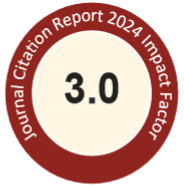Abstract
This study was aimed to evaluate the correlation between the polymorphisms of the UDP-glucuronosyltransferases1A7 (UGT1A7) gene and the risk of lung carcinogenesis in the Taiwanese population. A total of 230 lung cancer patients and 230 age- and gender-matched healthy individuals were enrolled in this case control study. UGT1A7*1 was defined as a high activity allele, while UGT1A7*2, UGT1A7*3 and UGT1A7*4 were categorized as low activity alleles. The relationship between EGFR mutations and UGT1A7 polymorphisms was investigated in this study. The frequency of UGT1A7*2 and UGT1A7*3 was significantly higher in the lung cancer group than in the control group (p = 0.03, odds ratio (OR) = 1.44, 95% confidence interval (CI) = 1.04-1.99 for UGT1A7*2; and p = 0.01, OR = 1.56, 95% CI = 1.11-2.18 for UGT1A7*3). The frequency of lower activity alleles was significantly higher in the lung cancer group than in the control group (p = 0.03, OR = 1.58, 95% CI = 1.04-2.40 for the high-activity allele/low-activity allele (H/L) group; and p < 0.01, OR = 2.23, 95% CI = 1.29-3.84 for the low-activity allele/low-activity allele (L/L) group). This difference was only significant in the male subgroup, with odds ratio of 1.87 (95% CI = 1.05-3.36, p = 0.03) for the H/L group and 2.638 (95% CI = 1.28-5.42, p < 0.01) for the L/L allele group. Yet, pathologic type and epidermal growth factor receptor (EGFR) mutations did not affect the distribution of UGT1A7 in the patient group. The results suggested that the polymorphisms of the metabolic gene, UGT1A7, may contribute to reduced enzyme activity and subsequently affect the detoxification of carcinogens. It is therefore concluded that UGT1A7 polymorphism is associated with lung carcinogenesis for the Taiwanese population.
Recommended Citation
Lee, J.-A.; Liu, H.E.; Huang, W.-I.; Lee, C.-N.; Yu, M.-C.; Bai, K.-J.; Chang, J.-H.; Hsu, H.-L.; Lu, P.-C.; and Chen, H.-Y.
(2011)
"Association of low activity of UGT1A7 with Lung Cancer in Taiwan: A preliminary case control study,"
Journal of Food and Drug Analysis: Vol. 19
:
Iss.
4
, Article 11.
Available at: https://doi.org/10.38212/2224-6614.2201

